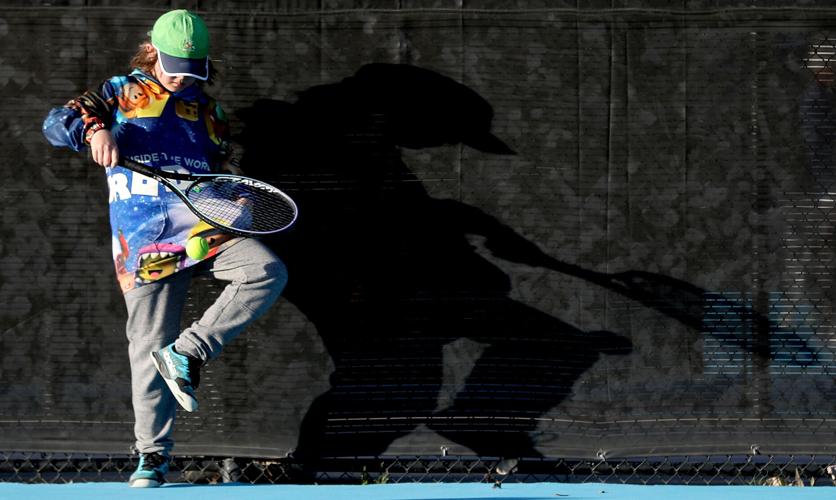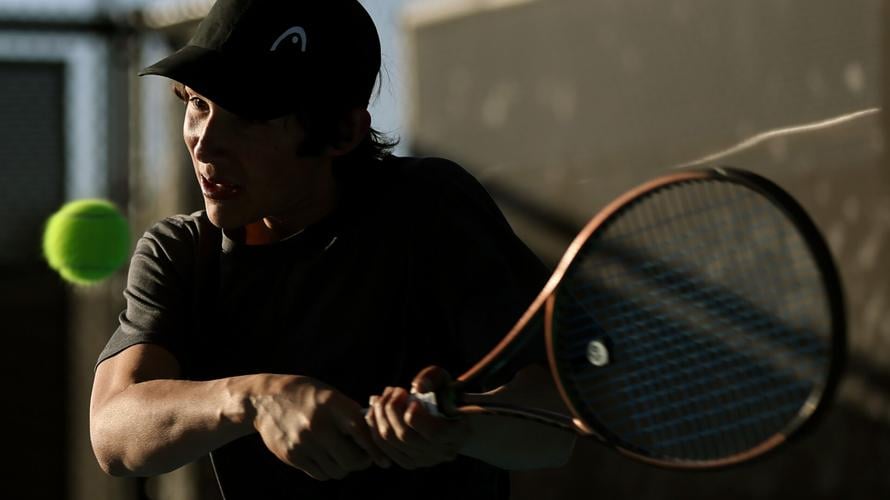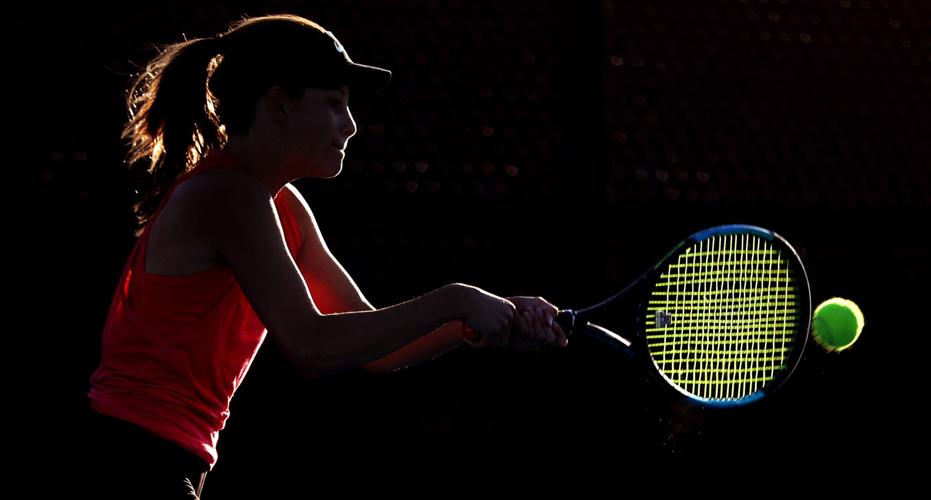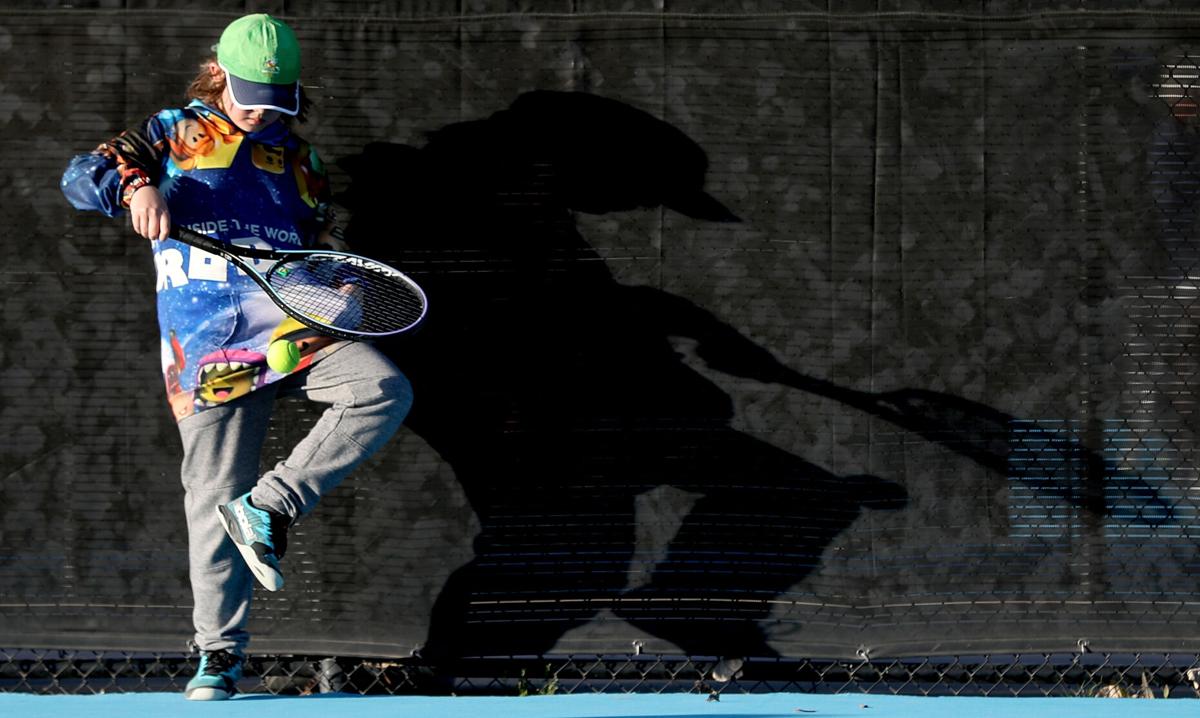Tucson’s Jewish Community Center has redesigned its junior Elite Tennis program to focus on mental training and sports psychology with hopes of improving players’ well-being on and off the court.
With prominent sports figures Simone Biles and Naomi Osaka speaking out recently about their own mental health struggles, there’s been renewed focus on total wellness.
Or, as JCC Director of Racquet Sports Miguel Coelho says: “Tennis is more than just hitting the ball.”
The JCC’s JET program, designed for players ages 8 through 18, is the only tennis program in Tucson that offers this type of approach, Coelho said.
Steven Annacone, tennis coach at the JCC, said that by having the right thinking and approach, players can deal with adversity and the negative thoughts that crop up when they miss a shot or lose a match.
With positive reinforcement, Annacone said, players learn how to deal with pressure by allowing them to focus on the next point or match where they have another opportunity to succeed.
“Sometimes by focusing on the outcome rather than the process of how you get there, it interferes with your ability to actually execute with what you are trying to do,” Annacone said.
The American Psychological Association said the quality of a child’s experience in a sports program largely depends on the environment created by the coach, and that coaches who implement team-building, esteem-nurturing and example-setting practices into their training produced players who were happier playing their sport and reported an increase in their self-esteem.
The NCAA considers mental health and increasing area of concern for college athletes, with the Journal of American College Health reporting in 2020 that stress was in the top three mental health concerns identified by student-athletes, along with anxiety and depression. A 2019 study published in Clinical Sports Medicine found that about one-third of male student-athletes and half of female student-athletes reported being impacted by anxiety in the last 12 months.

Austin Cohen returns a backhand during a Junior Elite Tennis practice at the Tucson JCC.
By integrating sports psychology and mental training into their players’ lives at an early age, Coelho and Annacone are hoping to foster a healthy training environment and maximize their players’ potential both on and off the court.
The mental health component happens both on and off the court. On the court, players do drills that reinforce strategic techniques, with Coelho and Annacone creating situations where players must think about what to do in a short amount of time. This allows players to make their own decisions, Coelho said.
Because tennis is an individual sport and players are alone by themselves on the court without the option for substitution of other players or in-game coaching, it’s up to each player to make his or her own decisions, Coelho said.
“Tennis is an open-skill sport, it is not about perfection,” he said.
Off the court, Coelho brings in guest speakers, including coaches, other players or sports psychologists who talk about its application in tennis.
Annacone said mental training can give players a big advantage over others who only do physical training and can mean the difference between an average player and a remarkable player.
“(Mental training) is about looking at things in a healthy way so you don’t have so much pressure on you and so many things going through your head that your body can actually perform the way it’s capable of doing,” Annacone said.
Coelho and Annacone use simple methods, including visualization, breathing, having a routine after scoring a point and thinking about what to do to get the next point, to maximize the players’ performance.

Junior Elite Tennis player Haley Wood works on her backhand during a practice session at the JCC.
Tennis is a lesson-teaching sports that allows players to learn about themselves, Annacone said, adding that the goal of the JET program is not just about making kids good tennis players, but also about making them good people who can adjust when things go wrong in life.
Rachael Mitchell, the JCC’s director of marketing and communications, hopes the strategy will get more kids to play tennis.
“This kind of holistic approach really benefits everyone,” Mitchell said.
The JET program runs Monday through Friday from 4 p.m. to 7 p.m. at the Tucson Jewish Community Center, 3800 E. River Road. Players can pick their schedule and private lessons are available.







